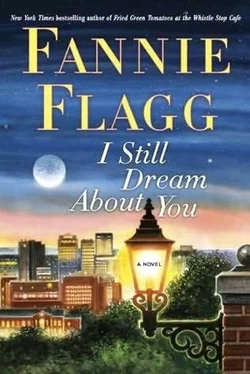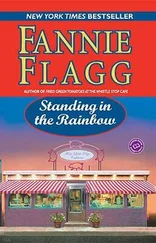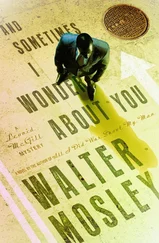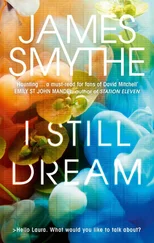She paid her bill, went out, got in the car, and headed straight up the mountain. It was stupid and childish, she knew, but she couldn’t have stopped herself if she’d tried. She parked in front of Crestview and began to get more upset by the minute. There it stood, like it always had, so stately and proud, overlooking the city. To Maggie, it was the perfect house, perfectly proportioned, elegant, and understated. Of course, she had never been inside, but Mrs. Roberts, who had been a friend of Mrs. Dalton’s, had said that it had lovely wood-paneled walls in every room and the most beautiful set of white marble stairs she had ever seen. When Maggie was growing up, she had dreamed about those white marble stairs.
In the past, she had watched helplessly as Babs Bingington had sold off so many of the beautiful old homes over the mountain and, one by one, they had been torn down. Seeing those lovely old homes go and all the ugly new ones overbuilt on the lots had been a bitter pill to swallow. But if Babs got this listing, it would be a disaster. Babs Bingington had single-handedly been responsible for tearing down blocks and blocks of charming little thirties bungalow homes on the south side and developing new cheap four-story fake Swiss château swinging-singles apartments with a bad pool in the middle. The more she thought about it, the more agitated she became. Babs really had no business selling Crestview. She would run in, slap it on the market, and treat it just like any other property. She had no sense of the history and what it had meant to the people in Birmingham. She would view it with her cold fish eye and be willing to sell it to the highest bidder.
The thought of Babs Bingington marching through Crestview, like Sherman through Atlanta, gave Maggie a sick feeling. Babs had no loyalties to the town or the neighborhood. In the past, there had always been an unwritten law among real estate agents about selling homes on the mountain; even if it meant taking a cut out of your own commission, you did not sell those houses to people you knew would not take care of them or appreciate them. But not Babs. She was only interested in the sale. And who knows what could happen? Some young dot-com millionaire could buy it and put a basketball court in the living room. Or worse yet, it might be sold to a developer. If someone tore Crestview down, the entire skyline of Birmingham would change; it would be like looking at a beautiful woman with her front tooth missing. Or even worse, if one of Babs’s developer cronies got a hold of it, a beautiful woman with a big bright orange tooth. Thanks to Babs, there were some streets Maggie couldn’t even drive down anymore.
Oh no, here came that strange rage again. She could feel her cheeks starting to burn and her face turning beet red and her heart pounding a mile a minute. What was going on? She had never lost her temper in her life. This was twice in one month. It was either late menopause or some weird form of road rage-or, in this case, real estate rage. Whatever it was, she realized she’d better calm down. She didn’t want to have a stroke before she had a chance to finish up all the loose ends she still had to deal with.
As she drove across town, she tried to calm herself. First of all, it really could just be a rumor that Crestview was coming up for sale. With the ladies from St. Martin’s, you could never be sure; being of a certain age, many of them were a little deaf and often got things mixed up. Maggie hoped and prayed that this was the case today. And it really made no sense. Why would Mrs. Dalton be selling? The Dalton family had owned Crestview for as long as she could remember, and they certainly didn’t need the money, so surely, Fairly Jenkins must be mistaken. Still, Maggie hated to have to spend the next six days wondering about it. But how could she find out? She couldn’t just call Mrs. Dalton and ask her outright; it would be far too rude and pushy. Oh Lord, why, of all the houses in the world, did it have to be Crestview? She should have canceled her hair appointment when she’d had the chance. Then she never would have even known about it. With all she had to do in the next few days, the last thing she needed was one more thing to have to worry about. And even if by the slightest chance it was true, and Mrs. Dalton was selling Crestview, there was not a thing in the world she could do about it now. Besides, she didn’t have time to think about anything but the task at hand. She would just have to try to put it entirely out of her mind and get on with her day. Dear God, what next? That was the point: she didn’t want to know what next. She didn’t need any more surprises. Life had surprised her enough.

I F MAGGIE HAD LIVED MOST OF HER LIFE UNDER THE SPELL OF HER childhood, she wasn’t alone. A lot of people still had a few stars left in their eyes, and no wonder, growing up in a place called the Magic City, with all of its lofty aspirations and illusions of grandeur. You could see it everywhere you looked, from the towering smokestacks of the iron, coal, and steel mills to the grand mansions atop Red Mountain to the sparkle in the cement in the downtown sidewalks. The city was bustling and alive, with block after block of elegant stores, where mannequins stood in haughty poses, dressed in the latest fashions and furs from New York and Paris; blocks of showrooms filled with fine rugs, lamps, and furniture, displayed so beautifully you wanted to walk in and live there forever (or at least Maggie had). There had always been an excitement in the air. A feeling that Birmingham, the Fastest-Growing City in the South, was right on the verge of exploding into the biggest city in the world. Even the streets had been laid out extra wide and stood waiting, as if expecting a tremendous rush of traffic at any moment. From the beginning, Birmingham had been bursting with ambition and hated being second to Pittsburgh in steel production and having the second-largest city transit system in the country. Even the towering iron statue of Vulcan, the Greek god of fire and iron, that stood on the top of Red Mountain was only the second-largest iron statue in the country, and during the war, when headlines announced that Birmingham, Alabama, had been named the number two target city in America to be bombed by Germany and Japan, everybody was terribly disappointed; they would have loved to have been first! Their only consolation: they did have the largest electrical sign in the world, which greeted all visitors as they came out of the train station. It blazed with ten thousand golden light bulbs that spelled out WELCOME TO MAGIC CITY. Birmingham was a city with a pulse that you could hear beating, working, and sweating, striving to become number one. The giant iron and steel mills clanked and banged and spewed out pink steam and billowed thick smoke all hours of the day and night. Coal miners worked in shifts around the clock. Streetcars and buses ran twenty-four hours a day, packed full of people either going to or coming home from work.
In the afternoon, parents used to drive their children up the mountain to Vulcan Park to watch the sun set over the city, when the sky would come alive with layers of iridescent green, purple, aqua, red, and orange that streaked across the horizon as far as you could see. Everyone thought it was a special show the city put on just for them. It never occurred to them that the beautiful colors were caused by all the toxins and pollutants spewing out from all of the mills surrounding the city. They also never dreamed that one day, most of old downtown Birmingham, its magnificent movie palaces, restaurants, and department stores with the beautiful shiny brass doors and silver escalators, would all be shut down for good. But they were.
Читать дальше













